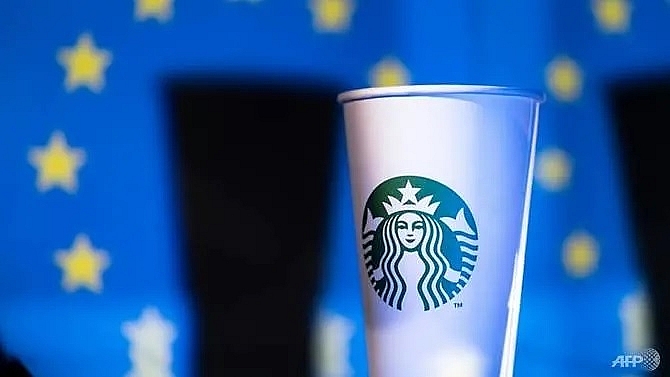EU loses big Starbucks tax case, wins on Fiat
 |
| In cases keenly being watched by Apple, ordered to repay Ireland €13 billion in 2016, Brussels saw its unpaid taxes claim against Starbucks annulled - but upheld in the case of Fiat. (Photo: AFP/Kenzo Tribouillard) |
In a separate decision, however, the same court said Fiat must pay roughly the same amount to Luxembourg, upholding a similar EU order from 2015.
The split ruling will be closely watched by the iPhone-maker, which was ordered to repay Ireland €13 billion in 2016, a decision that is also making its way through EU courts.
The court result is a mixed blessing for the EU's anti-trust supremo Margrethe Vestager, one of the EU's highest profile officials who made her name by slapping mega-fines on Google.
In a statement she said the decisions "gave important guidance" and that the EU would continue its fight against "aggressive tax planning".
"The judgements confirm that, while member states have exclusive competence in determining their laws concerning direct taxation, they must do so in respect of EU law, including state aid rules," she said in a statement.
The cases can now be appealed at the EU's highest court, the European Court of Justice, a process that could take years.
Starbucks in a statement said the ruling "makes clear" that it "did not receive any special tax treatment from the Netherlands."
In her landmark ruling, Vestager had said Dutch authorities must recoup unpaid taxes from Starbucks because it illegally allowed an elaborate tax set-up that allowed the pumpkin latte and espresso maker to shift revenue abroad.
"This decision proves that the Dutch tax authorities treated Starbucks like any other company, and no better or different," Dutch secretary of state for finance Menno Snel said in a statement.
The Starbucks and Fiat cases are dwarfed by the blockbuster order in 2016 that Apple repay Ireland €13 billion.
That case drew global attention, and infuriated Apple CEO Tim Cim cook who called it "total political crap".
EU member states such as Ireland, Luxembourg, Belgium and the Netherlands have attracted multinationals over many years by offering extremely favourable tax deals to generate jobs and investment.
The issue hit close to home in 2014 with the LuxLeaks scandal which revealed that European Commission President Jean-Claude Juncker's native Luxembourg gave companies favourable tax deals while he was prime minister.
Luxembourg has also been ordered by Brussels to recoup €250 million from Amazon and €120 million from French energy giant Engie.
The government on Tuesday said it took note of the Fiat decision and underlined its adherence to tax reform at the OECD, the club of rich nations.
'IN THE BIN'
The General Court in February handed the commission a first setback when it threw out a tax deal decision against Belgium, but mainly on procedural grounds. The commission last week refiled the case.
The commission is also investigating tax deals with Ikea and Nike in the Netherlands. Brussels dropped a keenly-watched case against McDonald's.
Tove Maria Ryding, tax expert at the European Network on Debt and Development, welcomed the state aid cases as they "exposed cracks in the broken tax system".
However, "the only way to ensure that multinational corporations are taxed fairly and effectively is to throw the existing corporate tax rules in the bin and create a new and better system," she said.
In the new commission, Vestager has been promoted to executive vice president and will effectively become Europe's tech regulation czar, while still holding on to her powerful anti-trust portfolio.
What the stars mean:
★ Poor ★ ★ Promising ★★★ Good ★★★★ Very good ★★★★★ Exceptional
Related Contents
Latest News
More News
- The generics industry: unlocking new growth drivers (February 04, 2026 | 17:39)
- Vietnam ready to increase purchases of US goods (February 04, 2026 | 15:55)
- Steel industry faces challenges in 2026 (February 03, 2026 | 17:20)
- State corporations poised to drive 2026 growth (February 03, 2026 | 13:58)
- Why high-tech talent will define Vietnam’s growth (February 02, 2026 | 10:47)
- FMCG resilience amid varying storms (February 02, 2026 | 10:00)
- Customs reforms strengthen business confidence, support trade growth (February 01, 2026 | 08:20)
- Vietnam and US to launch sixth trade negotiation round (January 30, 2026 | 15:19)
- Digital publishing emerges as key growth driver in Vietnam (January 30, 2026 | 10:59)
- EVN signs key contract for Tri An hydropower expansion (January 30, 2026 | 10:57)

 Tag:
Tag:



















 Mobile Version
Mobile Version